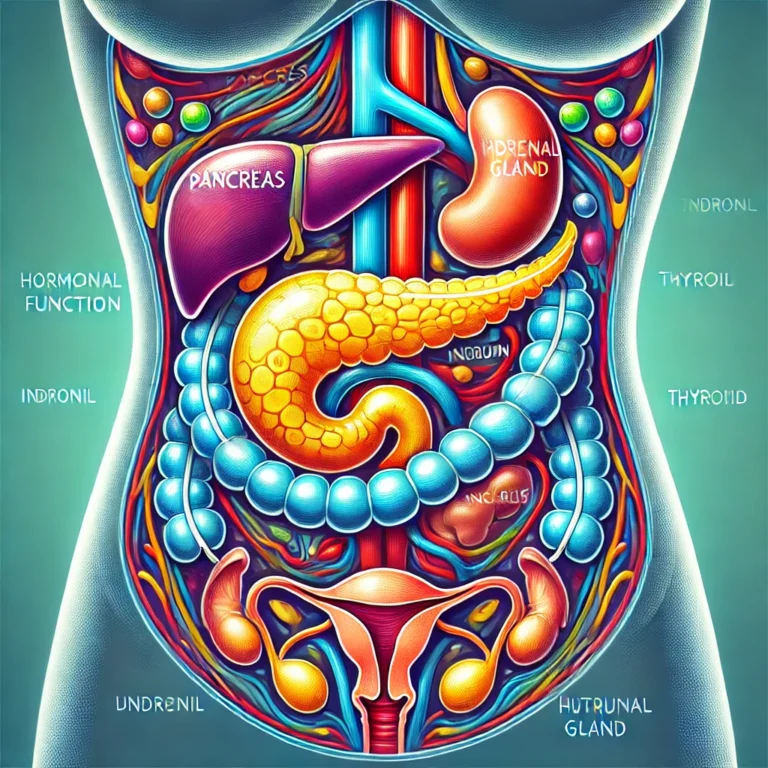*This post may contain affiliate links for which I earn commissions.*
Aging is a natural process that every living thing experiences. Most of us know what aging looks like, and many of you know what aging feels like. Yet, can we define aging? Aging involves changes at the cellular level, with effects ranging from wrinkles and gray hair to more severe health conditions. While we can’t stop aging, our lifestyle choices can influence how gracefully and or dramatically we age.
Sugar is everywhere, from our morning coffee to packaged snacks. But what exactly is sugar? There are different types, like glucose, fructose, and sucrose, each having a unique impact on our body.
Various studies have implicated excessive sugar intake in contributing to faster aging, making it crucial to moderate sugar consumption to maintain overall health and reduce aging risks (Zaitoun et al.). Understanding this link is key to making informed decisions about our diets and overall health.
The Biochemical Mechanisms: How Sugar Ages the Body
Our body uses sugar for energy, but too much can have negative effects. Enzymes play a crucial role in both controlling and speeding up chemical reactions in the body. When sugar binds to either proteins or fats in the process called glycation, it generally happens in an uncontrolled way. The end result is the formation of harmful compounds known as Advanced Glycation End-products (AGEs).
Glucose and fructose are the biggest culprits in the production of AGEs. The body needs glucose for energy. In high amounts glucose can lead to significant cellular damage. Fructose, often found in high-fructose corn syrup, is even more potent in creating AGEs and can cause oxidative stress.
If I could personally bring about one piece of legislation that would change the world It would be to make a global ban on the use of fructose in food.
Glucose and fructose are the biggest culprits in the production of AGEs. The body needs glucose for energy, glucose can lead to significant cellular damage. Fructose, often found in high-fructose corn syrup, is even more potent in creating AGEs and can cause oxidative stress.
Fructose in high-fructose corn syrup (HFCS) is chemically the same as the fructose found in natural sources like fruits. However, there are important differences in how they are consumed and how they affect the body
Fructose is naturally found in fruits and vegetables along with fiber, vitamins, minerals, and antioxidants. These nutrients help slow down the body’s absorption of sugar, which is good because it helps prevent sugar spikes.
Oxidation The Silent Accelerator of Aging
Oxidative stress is a concern when it comes to aging. Oxidation occurs when there’s an imbalance between harmful free radicals and protective antioxidants in your body. Eating too much sugar often increases these free radicals. This starts off a chain reaction, sugar causes inflammation
High sugar intake leads to an increase in the production of free radicals—unstable molecules that can damage cells, proteins, and DNA. This oxidative stress can activate inflammatory pathways, contributing to chronic inflammation.
When your sugar levels are consistently high, your body’s natural response usually gets thrown off balance, disrupting how your cells work. The next step is insulin resistance, an indicator or common warning sign that you are at risk of becoming a diabetic.
Diabetes puts a strain on the body’s systems, and bingo, this makes your tissues age faster. It does make me wonder if that piece of cake is worth it.
Sugar’s Impact on Skin Health
Your skin is your body’s largest organ, and for better or worse it very quickly reflects our lifestyle choices. Sugar has the magical property of dramatically speeding up the visible signs of age.
Collagen and elastin are the proteins found in the skin. They regulate how firm and elastic the skin is. Healthy, youthful skin looks smooth and elastic, but when sugar consumption is high, AGEs form. These AGEs latch onto these proteins, making them hard and brittle.
What Happens Next.
Sadly, it’s not a cinematic cliffhanger. It happens fast. Sagging skin, fine lines, and wrinkles appear overnight. It’s not just the structural proteins. Sugar radically affects the skin’s hydration and glow. High sugar levels then damage the capillaries that supply blood to the skin. Once the blood supply is restricted, the flow of nutrients reduces. The next step is another instant shocker. Voila, before you turn around, you have a very dull complexion.
Inflamed skin is another issue. Large amounts of sugar are toxic, which can result in acne and other skin disorders—just another little sidekick from too much sugar.
Research has consistently supported the detrimental role of sugar on the skin for decades. Multiple studies have shown that people with higher sugar diets nearly always have more signs of premature aging.
Let me be very clear here. High sugar diets aren’t an occasional celebratory birthday cake, but the systematic assault of a daily high sugar diet that wreaks havoc over time.
Once you understand the impacts sugar has, hopefully before your face tells you, you can make different choices. You can choose to reduce your sugar intake to improve your health. Simple steps such as cutting back on processed foods and sweet, sugary drinks can make a significant difference. Prioritizing eating whole foods and staying hydrated can help keep your skin looking vibrant. Vibrant skin is healthy skin, and it seems less old, even if you are older.
Effects of Sugar on Cognitive Function and Brain Health
The brain relies on glucose to function well, but too much sugar can cause big problems. Eating a lot of sugar can harm your memory and learning. When your sugar levels spike, it becomes harder for your brain to form new memories and remember things. Over time, this can even lead to cognitive decline, making it harder to think clearly and stay sharp.
The link between excessive sugar consumption and neurodegenerative diseases like Alzheimer’s has been known for decades. High sugar levels cause a build-up of something called plaques in the brain. These plaques are a hallmark of these neurodegenerative diseases. Repeated studies have suggested that people with high sugar diets are more likely to go on to develop confusion and dementia.
Insulin resistance doesn’t just affect the body’s physical health. It has serious implications for brain health. It changes the way the brain functions. The brain utilizes insulin to regulate neurotransmitters, which are crucial for both memory and learning. Once the brain has become resistant to insulin, it literally slows down. It can’t process and store information as fast as it could. This, of course, contributes to the cognitive aging process.
Experiments on rodents have demonstrated that rodents’ brains decline on a high-sugar diet. They are shown to have substantial memory loss and impaired spatial awareness. Of course, it goes without saying that it does not follow what happens in mice and might be replicated in humans. (Dong et al, 2018). https://doi.org/10.1016/j.bbr.2018.03.031
Metabolic and Cardiovascular Implications of Sugar-Induced Aging
High sugar consumption can wreak havoc on metabolic health. One common outcome is metabolic syndrome, a cluster of conditions including high blood pressure, high blood sugar, excess body fat around the waist, and abnormal cholesterol levels. This syndrome significantly raises the risk of chronic diseases.
Cardiovascular health takes a hit too. High sugar intake is linked to various cardiovascular diseases, such as heart disease and hypertension. The sugar-induced formation of AGEs can also stiffen arteries, making them less flexible and more prone to damage.
Over time, the arteries experience accelerated aging due to continuous high sugar consumption. The result is a higher risk of atherosclerosis, where arteries become narrowed and hardened due to plaque build-up. This increases the chances of heart attacks and strokes.
Clinical studies and population research have consistently shown that high sugar diets correlate with poorer cardiovascular outcomes. People with high sugar consumption often show higher levels of inflammation, lower HDL (good cholesterol) levels, and increased triglycerides, all of which contribute to cardiovascular aging.
Sugar and Bone Health
Bones aren’t usually the first thing that comes to mind when thinking about sugar, but its impact here is significant. High sugar intake can affect bone density and strength. When we consume too much sugar, the body’s ability to absorb essential nutrients like calcium and magnesium—crucial for strong bones—is hampered.
Research has shown a link between high sugar consumption and osteoporosis, a condition characterized by weak and brittle bones. This is particularly concerning for older adults, as their bones are already naturally weakening with age. Sugar accelerates this process, making fractures and bone-related issues more probable.
Inflammation caused by high sugar diets doesn’t just affect skin and organs; it also impacts bones. Chronic inflammation can interfere with bone remodeling, the process by which old bone tissue is replaced with new tissue. This interference makes bones more susceptible to damage and less capable of repair.
Preventing sugar-related bone issues involves a proactive approach. Reducing sugary snacks, drinks, and processed foods while increasing intake of nutrient-rich foods can significantly benefit bone health. Regular physical activity, especially weight-bearing exercises like walking and strength training, also helps maintain bone density and strength.
Sugar’s Role in Weight Gain and Obesity: Accelerating Aging
The link between sugar intake and weight gain is well-established. Consuming high-sugar foods and drinks leads to an excess of calories, which, if not burned off, are stored as fat. Over time, this leads to weight gain and, in many cases, obesity.
Obesity itself is a significant risk factor for premature aging. It contributes to a host of health problems, including cardiovascular disease, type 2 diabetes, and joint issues. These conditions can accelerate the aging process, making the body older than its chronological age.
High-sugar diets can disrupt metabolism, making it harder to maintain a healthy weight. Sugar causes insulin spikes, followed by crashes, leading to cravings and overeating. This cycle makes it challenging to manage weight effectively.
Behavioral studies show that sugar is addictive, triggering the brain’s reward system and making it difficult to cut down on consumption. This addiction can lead to a continuous cycle of overeating and weight gain, further accelerating aging.
To combat sugar’s impact on weight and aging, focus on balanced eating. Prioritize whole foods, like fruits, vegetables, lean proteins, and whole grains, over processed foods and sugary snacks. Regular physical activity combined with mindful eating can help manage weight and promote healthier aging.
Nutritional Strategies to Counteract Sugar-Induced Aging
Adjusting your diet to manage sugar intake can significantly impact aging. Start by identifying hidden sugars in your diet. Many processed foods, sauces, and drinks contain added sugars that can quickly add up.
Focusing on whole, unprocessed foods is a great way to reduce sugar intake. Fruits, vegetables, lean proteins, and whole grains provide essential nutrients without the added sugars. They also help stabilize blood sugar levels, reducing the risk of insulin spikes.
Including foods rich in antioxidants can help counteract the oxidative stress caused by high sugar levels. Berries, nuts, green tea, and dark leafy greens are excellent choices. These foods can help neutralize free radicals, reducing inflammation and cellular damage.
Staying hydrated is also crucial. Sometimes, thirst is mistaken for hunger or sugar cravings. Drinking plenty of water can help manage these cravings and support overall health.
Adopting mindful eating practices, such as reading labels, preparing meals at home, and avoiding processed snacks, can make a big difference. Over time, these habits will help reduce sugar consumption and promote better aging.
Small, sustainable changes often have the most significant impact. Rather than eliminating sugar entirely, which can be challenging and lead to cravings, gradually reducing intake helps create a lasting and manageable lifestyle change.
Conclusion: Embracing a Low-Sugar Lifestyle for Healthy Aging
Cutting down on sugar intake can profoundly affect the aging process and improve overall well-being. This article has highlighted the many ways in which sugar contributes to premature aging, from skin health to cognitive function, and from cardiovascular issues to bone health.
Making the shift to a low-sugar lifestyle may seem daunting, but the benefits are well worth the effort. Reducing sugar consumption helps manage weight, enhances energy levels, and promotes healthier skin, bones, heart, and brain.
It’s about making informed choices. Opt for natural, unprocessed foods, monitor your daily sugar intake, and be mindful of sneaky sugars hiding in common products. Incorporate nutrient-rich fruits, vegetables, and lean proteins into your diet to counteract sugar’s adverse effects.
Small changes made consistently can lead to significant health improvements. Embrace a diet that supports healthy aging and enjoy the long-term benefits, from looking younger to feeling more energetic and vibrant. By understanding and addressing the impact of sugar, you can take a proactive approach to your health, ensuring a better quality of life as you age






